Hi from Tallinn,
It’s time for Europe to buckle up. According to most polls, Donald Trump has a real chance to become the next president of the United States. A Trump win on 5 November would be good news for anti-European forces, and give their causes extra impetus.
Considering the depressing daily reports that Russia’s aggression in Ukraine provides, it was hard to listen to my Ukrainian colleague describe how the war situation could be much worse after a Trump victory.
Some see a silver lining. Estonia’s former defence minister, who is the subject of this week’s expert interview, thinks the return of Trump might discipline Europe into taking more responsibility for its own security, including that of Ukraine. To be fair, this is what multiple U.S. administrations, Democratic or Republican, have told us across decades.
There might be hope: for the first time since I can remember, Germany, the largest country in democratic Europe, seems to finally be rising to the challenge. Let’s hope it doesn’t come too late.
Herman Kelomees, this week’s Editor-in-Chief
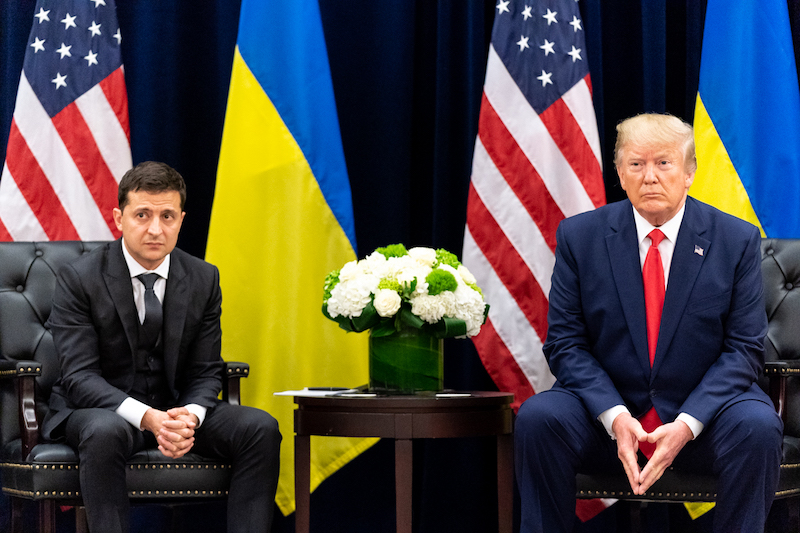
“For every tricky problem, there is a simple, appealing and wrong solution.” This phrase by policy strategist Yevhen Hlibovytsky describes the typical Ukrainian reaction to Donald Trump’s promise “to end this war in 24 hours”. It’s clear that even a politician as unconventional as Trump cannot stop a strong and determined aggressor like Russia overnight.
A quick solution can be provided only by negotiations in which Ukraine accepts significant territorial losses, as the Ukrainian president Volodymyr Zelenskyy recently stated. This not just dooms three million Ukrainians living in occupied territories to prolonged persecution, but also doesn’t prevent this war from flaring up again in a couple of years, as it is unlikely Putin’s objective to subjugate Ukraine will change.
This is obvious to anyone ankle-deep in the origins of the Russo-Ukrainian war. Once people realise how significant and symbolic this conflict is, effort and a call to action are necessary. An easy way to avoid this? Believe Trump.
Even if Trump only says this in his election campaign, the effects of such rhetoric are already visible. The Republican party can’t ignore Trump’s simple “solution”, which appeals to many US voters, and hardens its position against allocating money for military help for Ukraine. The crucial decision of giving Ukraine $61 bn is getting postponed for the third month already. Without Trump, there would probably be no such crisis.
Under Trump, it’s clear that US help to Ukraine will hardly be more generous than it has been. This has awakened Ukrainian arms factories, which are now scaling up production, making the Ukraine war effort more sustainable. Also, this stirs the EU awake. Now it is making its commitments to Ukraine more substantial, realising the US may not help. This is a viable strategy for the future. However, 2024 promises to be harder than it has to be.
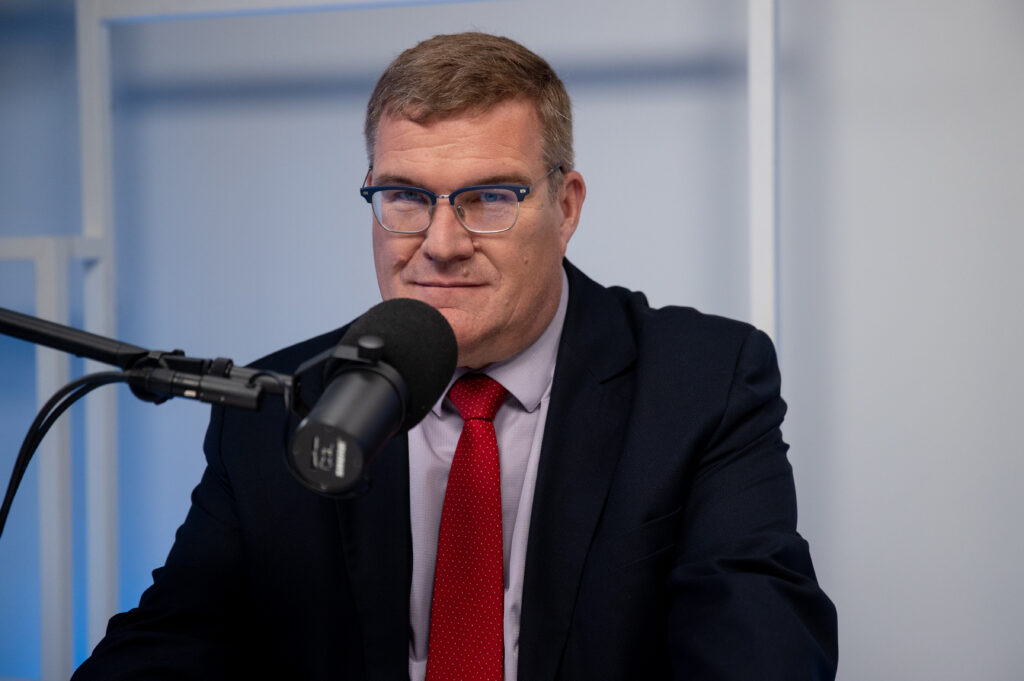
Indrek Kannik, director of the International Centre for Defence and Security says Trump’s White House could help Ukraine more than Biden’s second term.
How would Donald Trump’s victory impact the security of Estonia and Europe?
People who claim today they know what the impact would be are ruthlessly bluffing. One of Donald Trump’s special treats is that he is very unpredictable. One potentially negative impact is that it would bring even more confusion and confrontation in U.S. society than at present. Secondly, Trump’s win could have an irritating effect on our Western Europe allies and transatlantic cooperation may become worse.
Some security analysts also point to possibly positive outcomes. Do you see any?
Trump’s win could accelerate faster Europe to invest into its defence. The current administration’s actions – especially in the second year of the war – have been reactive in a bad sense, and they have always been far off the pace. This raises the question about who would be worse in office. I don’t see any reason to think that Biden in his second term would be more determined, energetic and capable to act more forcefully.
So, in essence having Trump in the White House could turn out to have a positive impact on European security?
It is not excluded, but the risks and unpredictability are high. Remember that when Trump was in office, the US presence in central and eastern Europe grew. Also, Barack Obama never agreed to deliver larger armaments to Ukraine, but this [process] started during Trump’s time and continued with Biden. These weapons were of tremendous help to Ukraine at the beginning of the war. Without it perhaps Ukraine wouldn’t have been able to survive. The best we can get from the current administration is the continuation of the static situation in Ukraine as it is now. With their unwillingness and fears of escalation they do not want to see Ukraine win the war.
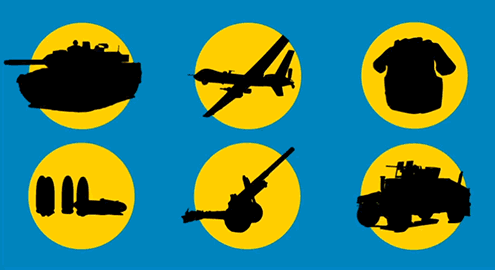
After a reluctant start, Germany has become the second-largest international donor of military support to Ukraine, behind only the USA. For 2024, Berlin promised to double its military aid to Kyiv to eight billion Euro.
Other economically powerful EU members France, Italy and Spain are not supporting Ukraine against Russian aggression consistent with their previous declarations. Chancellor Olaf Scholz is trying to pressure his European colleagues to engage more, as it becomes clearer that Europe cannot rely on the security backing of the USA.
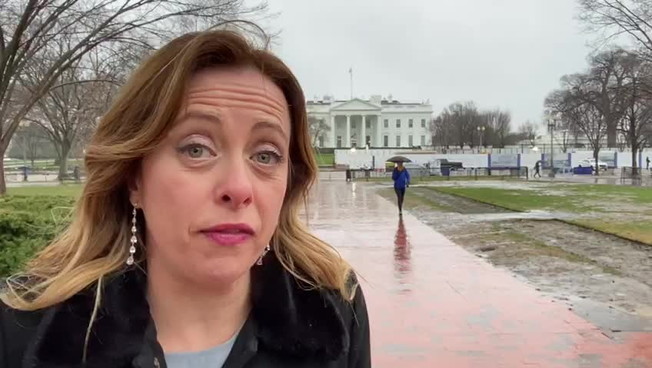
Some use a no-holds-barred style, such as Matteo Salvini, leader of Italy’s populist party Lega. Others prefer to disguise their intentions: this is the case of current Italian Prime Minister Giorgia Meloni. Either way, Italy’s far-right politicians have a strong bond with Donald Trump.
“Congratulations to Trump on the landslide Iowa caucuses victory!” Salvini tweeted last week. Lega’s leader became excited about Trump’s campaign back in spring 2016, when he took selfies with the tycoon. The latter reciprocated by wishing Salvini would become prime minister.
Even back then, the two had much in common, from the aggressive populist style to the plan to unite the sovereignist right. In 2017, when he was Trump’s chief strategist, Steve Bannon promoted a European network of far-right organisations. In 2021, Salvini was still trying to form a single right-wing group in the European Parliament.
A few years and elections later, Italy actually has an extreme right-wing prime minister: not Salvini, but Meloni. Although she also shares a common past with the Trumpians, her present status prompts her to be less outspoken. Meloni has exhibited support for Ukraine and a pro-American political line (so far, Joe Biden’s line) in exchange for her normalisation. So until Trump returns to the White House (assuming this happens), the premier is keeping silent.
This does not mean that the channels connecting her to Trump have dried up. In November, Meloni’s Brothers of Italy colleague, MEP Andrea Di Giuseppe, met Trump. Meloni was aware of this meeting in Mar-a-Lago, and received a gift, as Trump declared her “trustable”. Italy’s PM has frequented the National Prayer Breakfast and the Conservative Political Action Conference, and has historical links to Bannon and Trump. Behind Meloni’s “Washington-washing” was an attempt to reassure international observers with Washington’s umbrella. Despite this, her nonreassuring connection remains to the Trumpian world that participated in the assault on Capitol Hill.
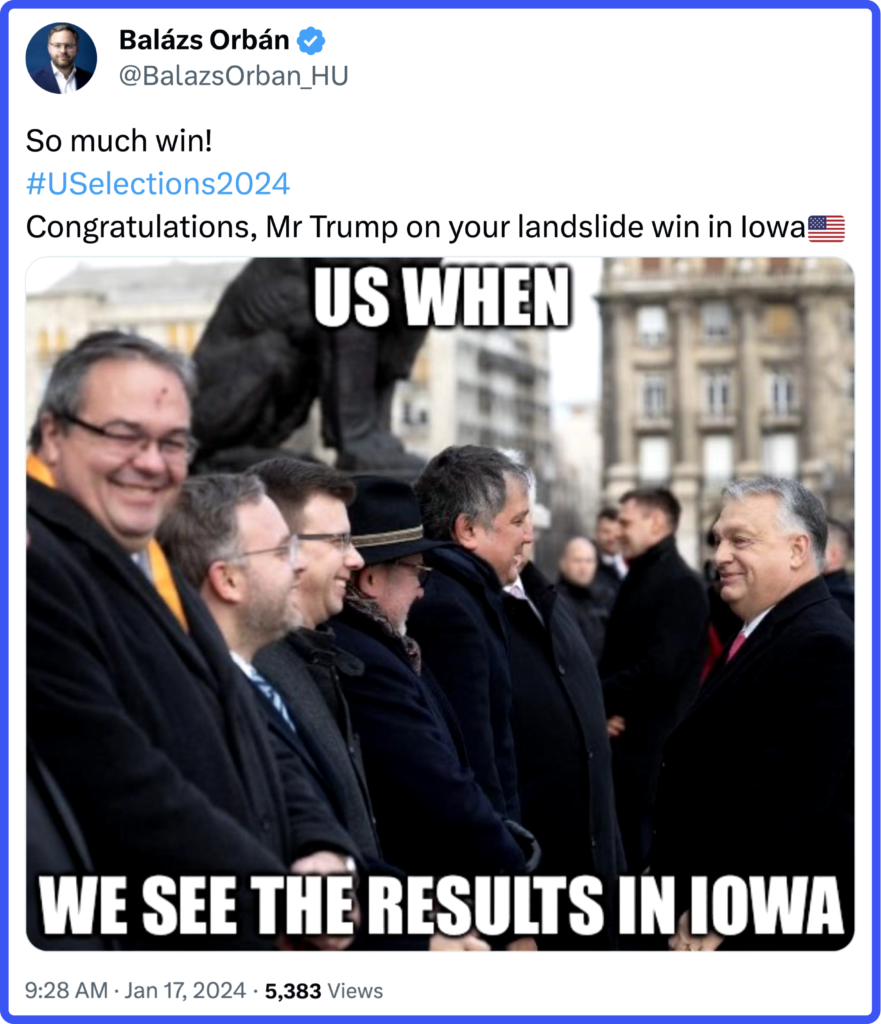
Hungary’s government has never made a secret of supporting Donald Trump. Prime minister Viktor Orbán also openly endorses the former U.S. president in his attempt to regain power. “I am sure that if President Trump were President, then today, Ukraine and Europe would not be stricken by any war. Come back, Mr. President! Make America great again and bring us peace!” he said last year at CPAC Hungary.
The real reasons might be more complicated. Unlike other EU members, the relationship between Hungary and the U.S improved under the Trump administration. While the former president was willing to turn a blind eye to Hungary’s declining rule of law under the Orbán government, the current U.S. administration is the opposite. Hungary’s adoption of Kremlin-style narratives and its failure to ratify Sweden’s NATO membership also do not help.
Thanks for reading the 58th edition of European Focus!
The past two years have been so sobering for Europe that it’s hard to think that we might go through something even worse – the decisive weakening of the relationship between us and our most important ally.
The recent Polish election showed that European Trumpists can be shown the door. The dark perspective of Trump’s return is the perfect opportunity to finally take ownership of both the democracy and the security of our continent. Let’s seize it.
See you next Wednesday!
Herman Kelomees






